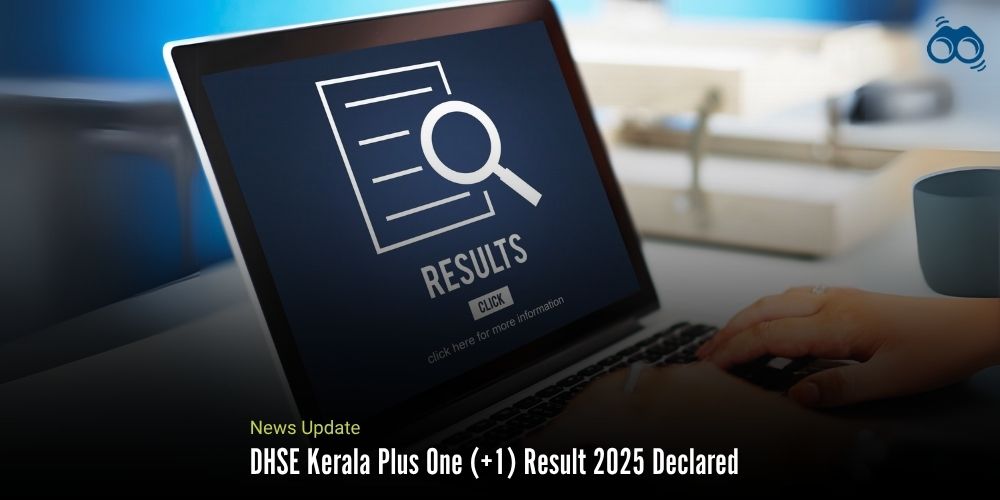Pass Rate Declines in Kerala Plus One Examinations Compared to the Previous Year
Students Access DHSE Kerala Plus One Results Through Official Websites
The Directorate of Higher Secondary Education (DHSE) Kerala has officially declared the results for the Plus One (Class 11) Higher Secondary (DHSE) and Vocational Higher Secondary (VHSE) Examinations 2025. This announcement marks a significant milestone for students across the state as they move forward in their academic journey.
The results were made available online on 3 June 2025, and students were informed that they could access their scorecards through the official websites: results.hse.kerala.gov.in, results.kite.kerala.gov.in, keralaresults.nic.in, and prd.kerala.gov.in. According to the schedule, the Kerala Plus One examinations were conducted between March 6 and March 9, 2025, at various centres across the state. In comparison, the results were declared earlier in the previous year, on 28 May.
According to official data from DHSE Kerala, a total of 3,83,647 regular school-going students appeared for the Plus One examinations across Science, Humanities, and Commerce streams. Additionally, 28,177 students registered under the Open School stream, while 1,572 students enrolled in the Technical stream. Of the regular students, 3,79,444 had their marks tabulated, with an overall pass percentage of 62.28% (students scoring above 30%). For updates regarding supplementary exams, students were advised to visit education.indianexpress.com.
In the Open School category, results for 27,295 candidates were tabulated, with a pass rate of 40.53%. Meanwhile, in the Technical stream, 1,562 candidates had their marks recorded, with 693 passing, resulting in a 44.37% pass rate. Among regular school-going students, the Science stream had the highest registration, with 1,90,383 students and a pass rate of 68.69%, based on 1,89,479 tabulated results. The Commerce stream followed with 1,12,647 students and a 59.64% pass rate, while the Humanities stream, with 80,617 registrations, had the lowest pass rate at 50.57%.
Similarly, in the Open School category, the Science stream recorded the highest pass rate at 70.36%, out of 3,335 students. In contrast, the Humanities and Commerce streams showed lower success rates of 37.30% and 35.31%, respectively. Officials also reported a decline in overall performance compared to the previous year. The pass rate for regular students dropped from 67.30% in 2024 to 62.28% in 2025, while the Open School category saw a slight decrease from 40.73% to 40.53%. With this year’s results reflecting changes in student performance trends, efforts towards academic improvement and support will remain crucial in the coming years.
Editor’s Note:
The declining pass rates in Kerala’s Plus One examinations raise important questions about student preparedness, academic support systems, and the effectiveness of current teaching methods. While factors such as evolving curricula and examination patterns may contribute to these shifts, it is essential to evaluate whether students are receiving adequate guidance and resources to excel. The drop in regular school-going students' success rates from 67.30% to 62.28% highlights a growing need for targeted interventions, particularly in subjects and streams where performance has lagged. Authorities must focus on strengthening foundational learning, enhancing teacher training, and improving access to academic support to prevent further declines. At the same time, the disparities between Science, Commerce, and Humanities streams, as well as variations in Open School and Technical categories, indicate that a one-size-fits-all approach may not be sufficient. Educational policies should be more adaptive, ensuring that students across different academic backgrounds receive tailored support. Additionally, with many students relying on digital platforms for learning and accessing results, it is vital to bridge gaps in technological accessibility so that every learner benefits equally.
As per Skoobuzz, as Kerala continues to refine its higher secondary education framework, prioritising fairness, inclusivity, and academic excellence will be key to shaping a stronger, more equitable future for students.














0 Comments (Please Login To Continue)